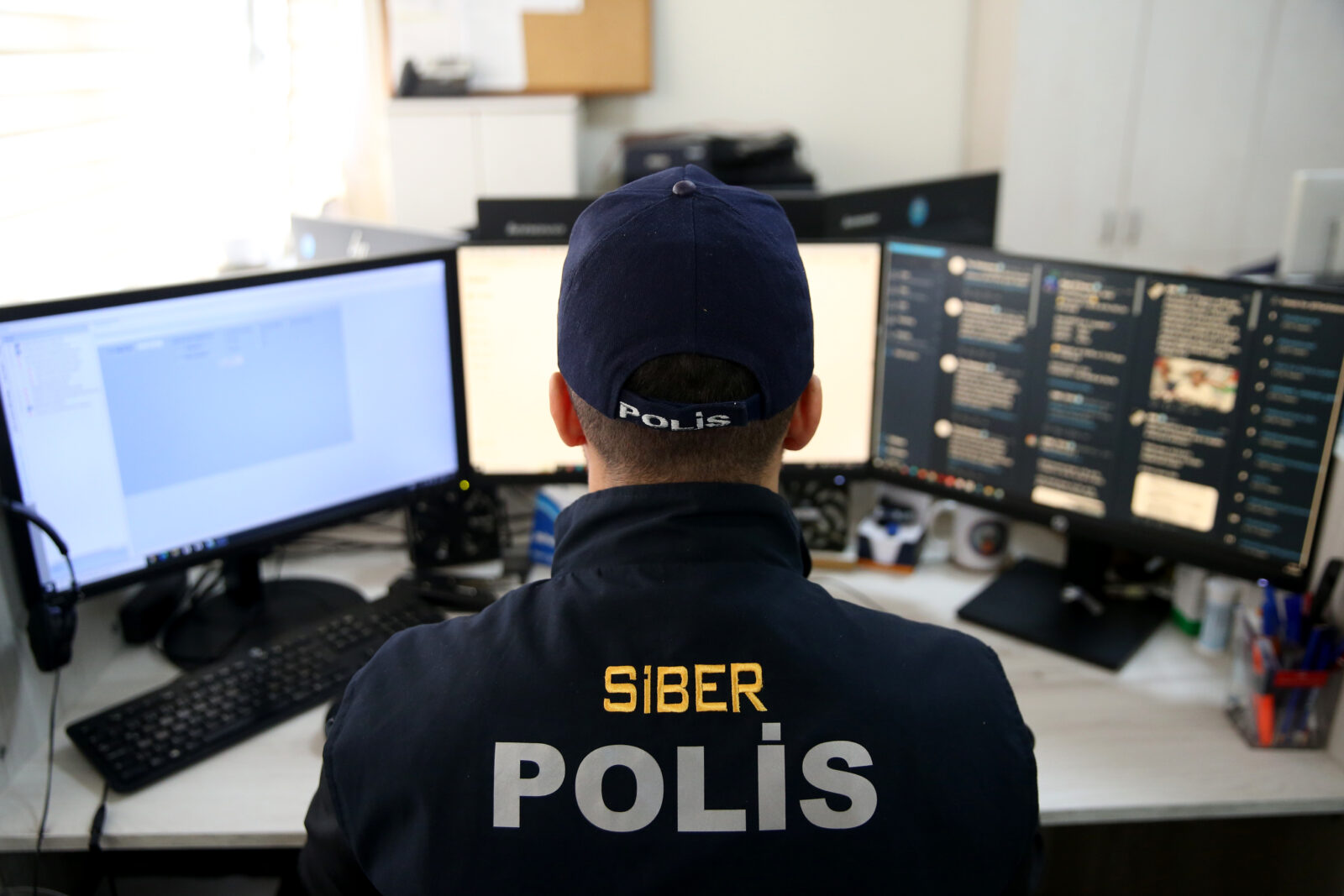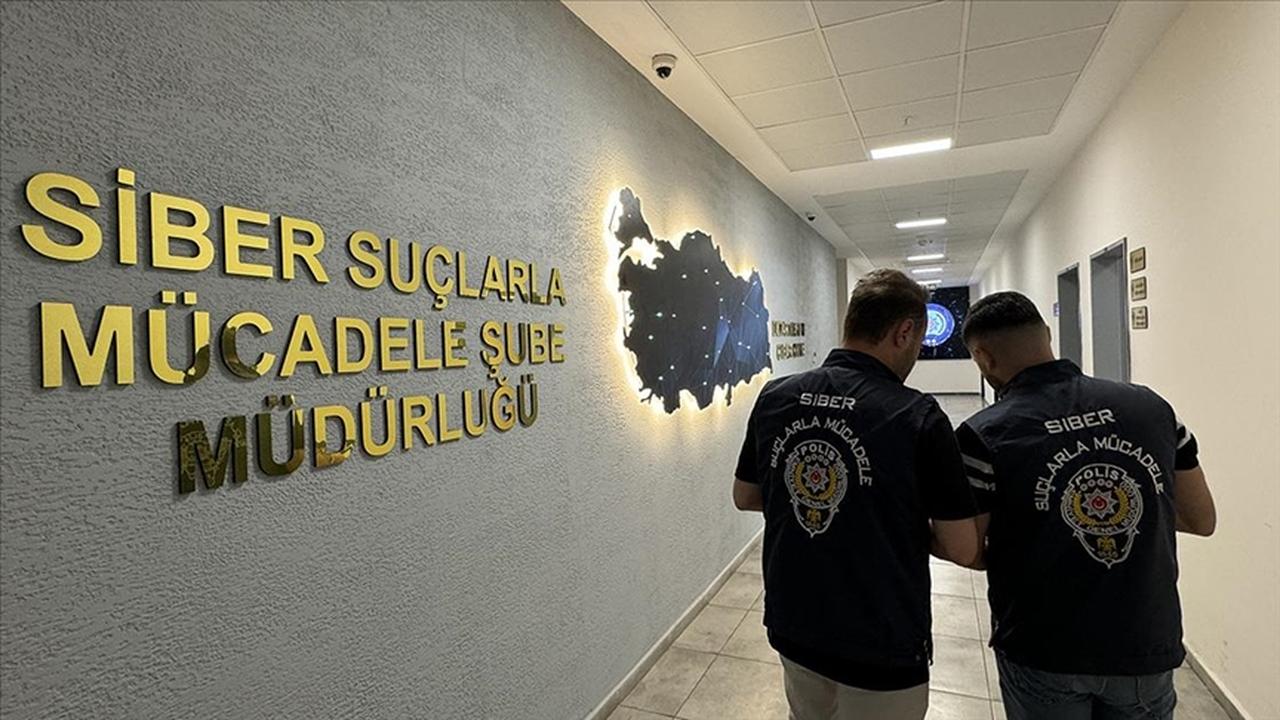
Turkish authorities have arrested 37 suspects in connection with an elaborate fake diploma scheme that used forged electronic signatures of high-ranking government officials to produce fraudulent university degrees and driver's licenses, according to indictments filed by Ankara's Chief Public Prosecutor's Office.
The investigation, which began with an internal university audit rather than an external tip, has expanded to encompass 199 suspects across two separate indictments filed in May and July.
Interior Minister Ali Yerlikaya announced that 197 suspects were detained during simultaneous operations conducted on Jan. 7 and May 23 across multiple provinces.
"In two operations conducted simultaneously in 23 provinces on Jan. 7, 2025, and in 16 provinces on May 23, 2025, a total of 197 suspects were caught. Of these suspects, 37 were arrested and 150 were given judicial control decisions," Yerlikaya said in a written statement on social media May 4.
The criminal network allegedly operated by copying electronic signatures of senior officials from Türkiye's Information and Communication Technologies Authority (BTK), Higher Education Council (YOK), and Ministry of National Education (MEB), enabling unauthorized access to government databases containing academic and licensing records.

The scheme involved copying electronic signatures of senior officials from critical government institutions, according to the indictment accepted by Ankara's 23rd Criminal Court of First Instance.
Those whose signatures were replicated included the President and Vice President of the Information and Communication Technologies Authority (BTK), the Director of Education and Training at the Higher Education Council (YOK), the Director of Management Information Systems at the Ministry of National Education (MEB) and Student Affairs Directors from 14 different universities.
Prosecutors determined that suspects worked with employees at two electronic certificate providers— TURKTRUST and E-IMZATR—that serve universities and government institutions.
The criminal organization produced fake electronic signatures using fraudulent driver's licenses and national identity cards, then used these forged credentials to gain unauthorized access to government systems.
The electronic signature copying process exploited Türkiye's e-government infrastructure, which relies on unique electronic signatures similar to national identification numbers for official transactions.
Only authorized personnel can access these systems and input official data into national platforms like e-Devlet.
According to the indictment, some suspects collaborated with employees at the two official certificate providers that work with universities and government institutions.
Fake electronic signatures belonging to public institution managers in critical positions were produced using fake driver's licenses and Turkish identity cards to gain unauthorized access to government systems.
Through this access, fake diplomas were created and added to the YOKSIS system, while unauthorized entry to MEB systems allowed the creation of irregular high school graduation records and alterations to written and practical driving test results.

The investigation revealed the production of 57 fake university diplomas, four high school diplomas, and 108 fraudulent driver's licenses.
The fake degrees span multiple fields, including psychology, mechanical engineering, architecture, computer engineering, political science, art teaching and civil engineering.
Suspects allegedly accessed both the YOKSIS higher education system and MEB databases to insert fraudulent academic records and alter driving test scores. The scheme also involved creating fake high school graduation records and manipulating grade point averages.
According to the indictment, many faculty members were involved in both diploma procedures and irregular transactions such as grade improvements. However, no information was included regarding the current status of people who allegedly obtained irregular diplomas.
The charges filed separately against suspects include irregular e-signature production and unauthorized access to public systems, arranging fake high school, undergraduate and graduate diplomas, increasing grade point averages, arranging fake driver's licenses, and changing written driving test and steering wheel grades.
Higher Education Council President Professor Erol Ozvar told the Türkiye daily on Aug. 2 that the institution would conduct its own investigation alongside affected universities. "This is a very serious incident. We will investigate from two fronts. Both we and the relevant universities will conduct separate investigations," he said.
"As of yesterday, we sent letters to the relevant universities to initiate the necessary procedures," Ozvar added. He also stated that legal regulation is needed to prevent fake diplomas and increase criminal sanctions.

Prosecutors identified Ziya Kadiroglu as the organization's leader, a former teacher and current doctoral student at Duzce University who has faced document forgery charges since 1999. Kadiroglu previously served five years in prison and was acquitted in 10 other cases.
Statements from many suspects indicate that Z.K. (Ziya Kadiroglu) was at the head of the organization. The indictment states that, considering party statements and material examinations, it was determined that Z.K. "served as an organizer from the very beginning."
According to the examination of Z.K.'s electronic materials, message records regarding many fake licenses, diplomas and negotiations were seized. The indictment alleges that Z.K. "participated in all actions of creating fake electronic signatures, making irregular entries and changes to MEB and Gazi University systems."
In 2016, Kadiroglu faced charges as an "organization leader" for allegedly running a 16-person fake diploma network, with prosecutors seeking 354 years in prison for crimes including "establishing a criminal organization, document forgery and qualified fraud."
He was later acquitted in that case and won compensation for "wrongful detention."
Kadiroglu has been involved in three separate investigations as an "organization leader" in 2010, 2012, and 2016.
According to Milliyet newspaper's report, details of the 2016 investigation show he was arrested as the leader of a 16-person fake diploma network and tried with a request for 354 years in prison for crimes such as "establishing a criminal organization, document forgery, qualified fraud," but was later acquitted in this case.
In his current testimony, Kadiroglu claimed he obtained an e-signature from a company called "E-Guven" to access the YOKSIS system during his doctoral studies, making this application by going to a dealer in Adana.
He stated that he used the electronic signature only a few times within the scope of thesis work and once when sending a petition to a court regarding overseas accounts.
Kadiroglu claimed he worked as a project coordinator at the International Agriculture Food Confederation operating in Ankara in 2021-2022, during which he met Ayhan Ates, who introduced himself as a National Intelligence Organization (MIT) officer.
He said that after his son had a traffic accident in October 2022, Ates visited frequently, but over time began talking about illegal work and requesting that he obtain an e-signature, which he refused due to his past imprisonment.

The Presidential Communications Directorate's Disinformation Combat Center (DMM) denied claims made by one suspect that 400 academics were improperly appointed through the scheme. One suspect, identified as A.T., claimed in his statement that 400 academics were irregularly placed in positions under the instructions of leader Z.K., with 270 fake signatures produced.
A.T. claimed that a person known as the team's "joker element," who spoke foreign languages very well, was put into foreign language exams on behalf of other people between 2006-2010, and "there were more than 400 people who became academics nationwide in this way."
A.T. also argued in the same statement that many of these academics who committed this irregularity had associate professor or professor titles.
However, the Presidential Communications Directorate's Disinformation Combat Center (DMM) denied the claim that 400 academics were irregularly appointed. In the Aug. 2 statement, it was noted that this claim was based on a single suspect's statement, with no concrete information, documents or findings.
The statement also noted that "among the 220 people processed as suspects in the investigation, there are no academics in Türkiye." It was also recorded that no teachers working in schools affiliated with MEB were among the suspects.
The investigation revealed that only a driving school instructor and a physical education teacher were mentioned, and these people were not in a teaching capacity.
"Apart from two people, there is no finding that any diploma issued was used in any professional practice."
The DMM statement emphasized that "the investigation was not initiated by an external report, but by a notification made to judicial authorities as a result of an internal audit of a university."
The Chief Prosecutor's Office stated in the indictment that these crimes were committed multiple times and in a chain manner, characterizing them as "chain crimes" due to their repeated nature. Suspects face prison sentences ranging from 5 to 50 years if convicted.

How widespread the scandal's broader issues with diploma fraud in Türkiye are revealed through entries found on consumer complaint website Sikayetvar.com, which contains over 160 complaints from individuals who paid for fake diploma services that failed to deliver, suggesting widespread demand for fraudulent academic credentials.
The complaints, dating from late 2023 through August 2025, describe various schemes where individuals paid thousands of Turkish lira for fake diplomas through social media contacts and websites, only to receive nothing or non-functional documents. One complainant wrote: "I searched for months to get a diploma and finally came across a user called 'd***' on Twitter. First, I requested information from them, and they sent me a very detailed message."
Another complainant described paying ₺31,000 for diploma registration services: "I made an agreement with the support team, who introduced himself as 'Poyri Dede' from the page called 'Yal. Varirimagzinal' and purchased the diploma registration service for 31,000₺. I paid 3,100₺, which is 10% as a down payment."
Multiple complainants described similar patterns of paying large sums through social media contacts, receiving digital copies of fake diplomas, but finding that the documents never appeared in official government systems or worked for employment purposes. One wrote: "I contacted www.diplomaservisi.com and despite depositing the money to the IBAN they gave, neither a diploma came nor did it appear on e-government."
The investigation began in 2024 when prosecutors first detected irregular activities at electronic certificate providers' offices in Adana, Mersin, Hatay, Ankara and Istanbul.
According to the first indictment, fake diplomas prepared at Gazi University's law and engineering faculties were found to have been added to the YOKSIS system, while driving license electronic exam results were changed to "successful" within MEB, and high school graduation records were added for four people.
The Interior Ministry emphasized that operations would continue "with determination so that no crime and criminal goes unpunished."